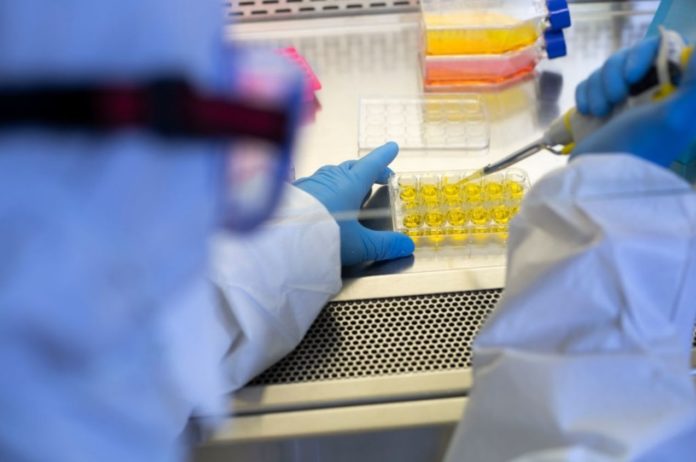A new research paper carried out by the University of Birmingham studied the incidence and sort of autoantibodies in covid positive patients.
Auto-antibodies are a sort of protein generated by the immune system that is pointed against one or more of the individual’s own proteins, which can trigger an autoimmune disease.
The early data highlights that Covid can trigger serious long-term autoimmune complications such as Guillain-Barre syndrome.
- Scientists in Fear of This New Predator From Red Sea Eating Native Species in Mediterranean
- Does This Mean We Stopped Being Animal and Started Being Human Due to ‘Copy Paste’ Errors?
- The One Lifestyle Choice That Could Reduce Your Heart Disease Risk By More Than 22%
- Aging: This Is What Happens Inside Your Body Right After Exercise
- Immune-Boosting Drink that Mimics Fasting to Reduce Fat – Scientists ‘Were Surprised’ By New Findings
Guillain-Barré Syndrome
It is a very serious condition in which “the immune system attacks the body’s nerves”.
Symptoms often seen in the feet and hands, before growing further to the arms and legs.
At first, people who have developed this condition may feel:
- Numbness or tingling in the hands or feet.
- Back pain.
- Muscle weakness (usually starts in the feet and moves upward).
- Breathing difficulty.
- Difficulty swallowing.
- Heart rate or blood pressure problems.
In severe cases, Guillain-Barre syndrome can lead to difficulty moving, walking, breathing and/or swallowing.
Treatment involves intravenous immunoglobulin (IVIG), plasma exchange, and painkillers.
Most people need to stay in hospital for a few weeks to a few months.
One in five sufferers will be left with long-term complications, such as:
- Being unable to walk without assistance
- Weakness in the arms, legs or face
- Numbness, pain or a tingling or burning sensation
- Balance and co-ordination problems
- Extreme tiredness
In the research conducted by the University of Birmingham, the frequency and types of autoantibodies were recorded in:
- 84 Covid patients who either had mild or severe reactions to the disease
- 32 people (as a control) who were in intensive care for another reason other than Covid.
The study found higher numbers of autoantibodies in the Covid patients compared to the control group.
In addition, the autoantibodies found in the Covid patients lasted for up to six months.
Professor Alex Richter said:
The antibodies we identified are similar to those that cause a number of skin, muscle and heart autoimmune diseases.
We don’t yet know whether these autoantibodies are definitely causing symptoms in patients and whether this is a common phenomenon after lots of infections or just following COVID-19.
Co-researcher, Professor Paul Moss stated that their study showed “for the first time” that Covid is associated to the production of selective autoantibodies.
More work is needed to define whether these antibodies contribute to the long-term consequences of SARS-CoV-2 [Covid] infection and hence could be targeted for treatment.
he added.
- Scientists in Fear of This New Predator From Red Sea Eating Native Species in Mediterranean
- Does This Mean We Stopped Being Animal and Started Being Human Due to ‘Copy Paste’ Errors?
- The One Lifestyle Choice That Could Reduce Your Heart Disease Risk By More Than 22%
- Aging: This Is What Happens Inside Your Body Right After Exercise
- Immune-Boosting Drink that Mimics Fasting to Reduce Fat – Scientists ‘Were Surprised’ By New Findings
The research paper – published on June 4, 2021 – was published in the journal Clinical and Experimental Immunology.
Image Credit: Getty
